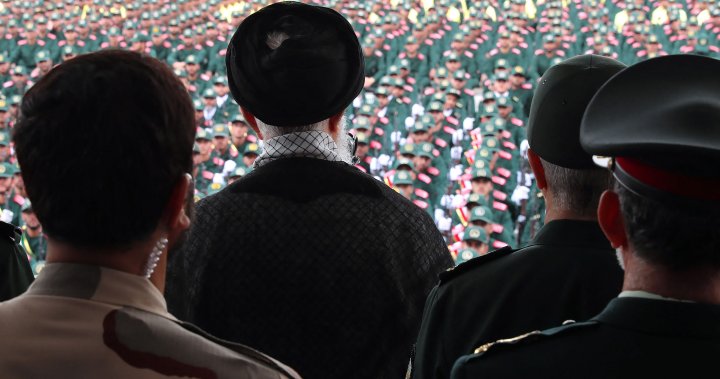The Canadian government’s efforts to deport an alleged high-ranking official of the Iranian regime have been thwarted by the Immigration and Refugee Board (IRB), marking the first setback for the government since its 2022 pledge to bar senior Iranian officials from entering Canada. The Canada Border Services Agency (CBSA) accused the Iranian national of holding a significant position within the Islamic Republic’s government, but the IRB, following a closed-door hearing, declined to issue a deportation order. This decision has been appealed by the CBSA to the IRB’s Immigration Appeal Division, but details surrounding the case, including the identity of the individual, remain shrouded in secrecy due to the IRB’s refusal to release the ruling or permit public access to the proceedings. This lack of transparency raises questions about the process and the justifications behind the IRB’s decision.
The government’s crackdown on Iranian officials stemmed from the regime’s violent suppression of the Women, Life, Freedom protests in 2022, ignited by the custodial death of Mahsa Amini, a young woman arrested for allegedly violating Iran’s strict dress code. The brutal crackdown, which involved mass arrests and killings, led Canada to officially designate the Iranian regime as a state sponsor of terrorism and a perpetrator of systematic human rights violations. This designation aimed to prevent senior Iranian officials from entering Canada and to facilitate the deportation of those already residing in the country. The government asserted that individuals complicit in gross human rights abuses would not be welcome in Canada, emphasizing the severity of the consequences they would face.
Despite the government’s strong stance, the implementation of this policy has faced challenges. Since the announcement, 18 suspected high-ranking Iranian officials have been identified in Canada. However, only three deportation hearings have been concluded, with the recent IRB decision marking the first government loss. The two successful cases resulted in deportation orders for Seyed Salman Samani, a former Iranian deputy interior minister, and Majid Iranmanesh, a science advisor to Iran’s vice-president. Despite these orders, only one individual has actually been deported under the policy, raising concerns about the effectiveness of the government’s efforts.
The lack of transparency surrounding the remaining six cases before the Refugee Board adds further complexity. The IRB’s refusal to disclose the names of the alleged officials and the closed-door nature of the hearings prevent public scrutiny and raise questions about due process. The CBSA maintains that the policy serves as a preventative measure, denying entry to senior Iranian officials and enabling immigration enforcement action against those already in Canada. They cite the cancellation of 84 visas by Immigration, Refugees and Citizenship Canada as evidence of the policy’s impact. However, they also acknowledge that various factors, including legal appeals, can hinder deportation efforts.
Iran’s destabilizing influence in the Middle East, its sponsorship of terrorist groups like Hezbollah, Hamas, and the Houthis, and its involvement in the downing of a passenger plane carrying Canadian citizens and permanent residents in 2020, underscore the urgency of addressing the presence of Iranian officials in Canada. Further complicating the issue are allegations of Iranian-backed assassination plots targeting individuals in the West, including a former Canadian Member of Parliament. These incidents highlight the potential security risks posed by individuals associated with the Iranian regime.
Separate from the issue of Iranian officials, Canada also faces challenges deporting individuals involved in other illicit activities. A forthcoming deportation hearing in February 2025 will focus on the case of Arash Cohen (formerly Arash Yousefijam), a Toronto man convicted in the U.S. for circumventing sanctions against Iran. Cohen, along with his brother, returned to Ontario after serving their sentences and legally changed their names. His brother, Ameen Cohen, subsequently had his dental license revoked after his past was revealed. The CBSA alleges that Arash Cohen poses a threat to Canada’s security. This case demonstrates the complexities of navigating legal processes and the challenges in holding individuals accountable for their actions, even when they involve international sanctions violations. The various cases highlight the intricate interplay between national security concerns, human rights obligations, and the legal processes governing immigration and deportation in Canada. The government’s efforts to balance these competing interests continue to be tested by the complexities of international relations and the challenges of enforcing its stated policies.

